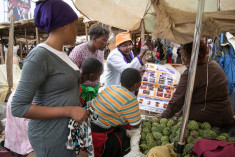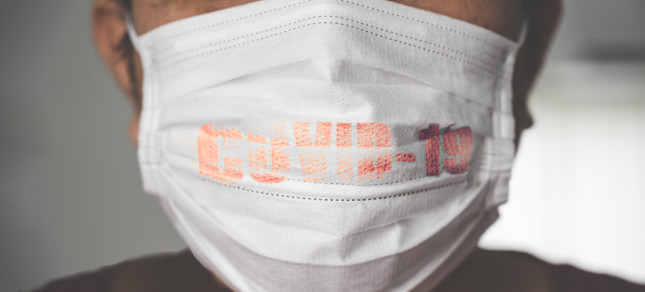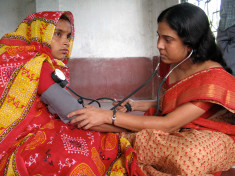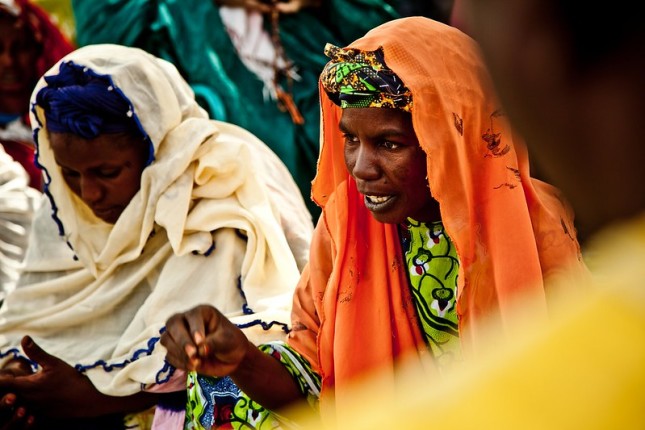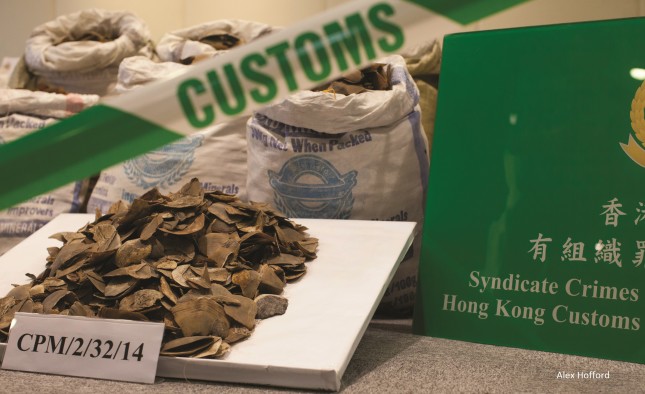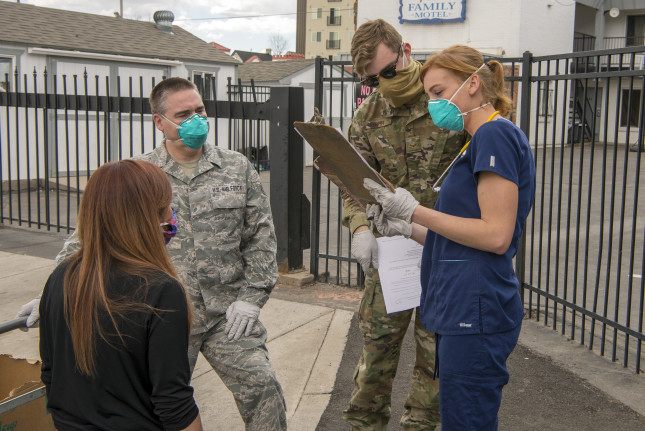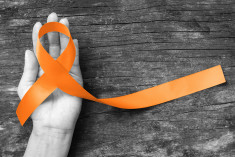-
First Ever State of the World’s Nursing Report: Unlocking the Gender Dimensions
›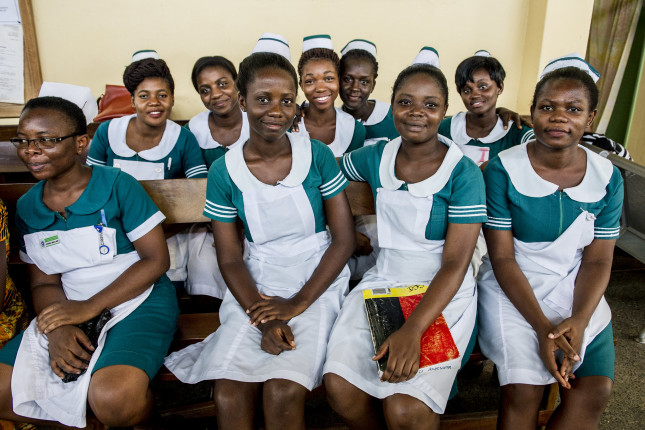
“The year is 2020 and it’s a year none of us will forget due to the Covid-19 pandemic,” said Sarah Barnes, Women and Gender Advisor and Project Director of the Maternal Health Initiative at the Wilson Center at a recent webcasted Wilson Center event. “The year 2020, as designated by the World Health Organization, is also the Year of the Nurse and the Midwife and was meant to be a year of celebration and much due recognition of these two incredible professions.” This month, the first ever State of the World’s Nursing report was published by the World Health Organization (WHO), International Council of Nurses, and Nursing Now.
-
Integrating Cervical Cancer Prevention into Comprehensive Women’s Health Care
›
Cervical cancer affects 570,000 women a year and kills 311,000. Nine in 10 (88 percent) of the deaths occur in developing countries. This cancer is caused by a common sexually transmitted infection, human papilloma virus (HPV), but is also considered a non-communicable disease (NCD) because of the slower way it presents. Yet, the disease is one of the most preventable and treatable cancers, and cost-effective solutions exist to prevent the disease. Given strong overlaps between HIV and reproductive health, we can and should do more to stop cervical cancer.
-
Gender, Masculinity, and COVID-19
›
Gender is shaping the COVID-19 crisis in real and significant ways. Beyond the direct, visible practices that by now we all should understand—stay home, wash your hands, step back six feet—gender and its interactions with class, race, and immigrant status impact a number of dimensions of this crisis. From epidemiology to the vulnerabilities of front-line health workers, from the distribution of care work within families to the implications of quarantine for domestic violence, we need to reflect critically on these interactions to shape a truly effective policy response to this pandemic.
-
High Blood Pressure: Pregnant and Postpartum Women Face Hidden Danger
›CODE BLUE // Dot-Mom // Guest Contributor // April 23, 2020 // By Charlotte E. Warren & Pooja Sripad
One-third of all maternal deaths can be traced to high blood pressure in pregnancy and in the weeks after giving birth. Yet many women don’t know how dangerous high blood pressure can be. And they may not realize they are at risk for many life-threatening conditions such as pre-eclampsia and eclampsia. Because high blood pressure can be asymptomatic, women with hypertension may not feel unwell or even know that their health is compromised.
-
Investing in Girls and Women Could Set Stage for Peace, Development in Sahel
›
The coronavirus pandemic has people throughout the world pondering how humankind should respond to a public health crisis. While individual countries are managing the crisis with varying degrees of success, we can all agree that the Covid-19 pandemic is commanding the international community’s attention. By contrast, it is much harder to get the world to care about the long-term public health crisis unfolding in the West African Sahel.
-
We Must Address Exotic Wildlife Consumption to Avoid the Next Global Pandemic
›
A suspect in the transmission of Covid-19 to humans, pangolins are the most trafficked animal in the world despite the ban on trade by the Convention on International Trade in Endangered Species of Wild Flora and Fauna (CITES). Currently on the Red List of the International Union for Conservation of Nature (IUCN), pangolins are armadillo-looking mammals found in Asia and Africa but are more closely related to cats and dogs. Humans hunt them for their scales used in traditional medicine and the fashion industry and for their meat, which is considered a delicacy. Asian pangolins have become critically endangered, and poachers have turned to trafficking African species, most destined for China and Vietnam. According to TRAFFIC, a leading non-governmental organization working on wildlife trade, twenty tons of pangolins are trafficked each year, putting them on the fast track to extinction.
-
Gender and the “War” on Covid-19
›
The rhetoric of war is all around us during the Covid-19 pandemic, from the World Health Organization to historical takes. More critical assessments note that this war, like others, will hurt the most vulnerable. In a recent essay, feminist political scientist Cynthia Enloe takes issue with this rhetoric, pointing to the historic ways in which wars have led to “racist, homophobic, and anti-Semitic practices.” Whether or not war rhetoric is helpful at this crucial moment, the current pandemic should be a wake-up call to expand what investments we consider essential to our national security, how we value work, and who gets called a hero.
-
How Women with Multiple Sclerosis Can Navigate Pregnancy
›
Multiple sclerosis (MS) is a non-communicable disease that affects maternal health. MS is an unpredictable chronic disease of the central nervous system that disrupts the flow of information within the brain, and between the brain and body. The progress of this disease, its severity, and specific symptoms cannot yet be predicted and varies by individual. Symptoms may disappear or diminish completely, or they may persist and worsen over time. Typical symptoms include fatigue, numbness and tingling, blurred vision, imbalance, pain, and problems with memory and concentration.
Showing posts from category gender.


